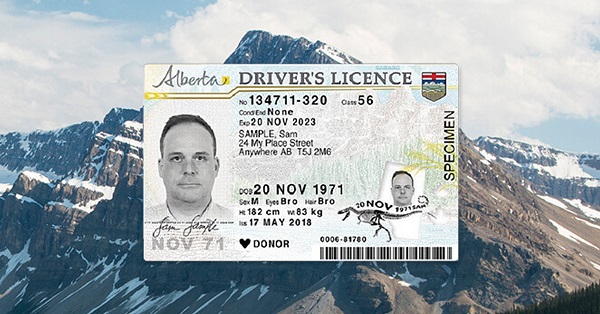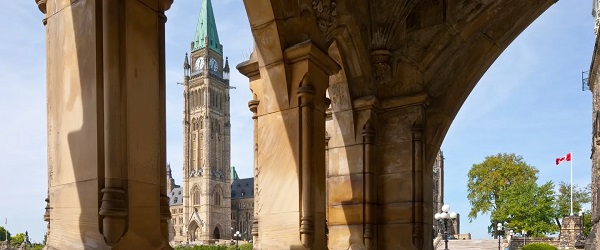Alberta
RDC and Alberta Colleges supporting soldiers

From RDC Communications
RDC joins Colleges Alberta partnership supporting reservists
A group of 12 Alberta post-secondary institutions have signed a memorandum of understanding supporting Canadian Armed Forces (CAF) Reservists who are college employees or students.

The services of Canadian Reservists may be required by the Department of National Defence while having work or study commitments at RDC, or partnered colleges. Leave may be granted under this memorandum, securing their employment and accommodating their studies until they return.
“It is really important if Reservists get called to duty, or have opportunities to train, our institutions support them,” says Joel Ward, RDC President & CEO, on behalf of Colleges Alberta. “There were some formal policies in place but we decided as a group of Alberta colleges to make a strong statement through a MOU, supporting Reservists in our institutions, whether they are students or employees.”
Of the approximately 90,000 dedicated men and women serving in the Canadian Armed Forces, 26,000 are Reservists. About 30 per cent of those Reservists are students. As needed, several accommodations will be available for these learners. Tests and assignments can be rescheduled, and a program may be deferred during a lengthy deployment.
As Commander of 41 Canadian Brigade Group (41 CBG), Colonel Eppo van Weelderen, recognizes the importance and value of this formal agreement. “This collaboration among the Alberta colleges is paramount to continue the development of educated, hard-working and strong leaders for Canada,” he says. “This will help provide the necessary supports to our soldiers as they fulfill their duties serving our nation, in our communities and abroad.”
Forty-one CBG is one of three Army Reserve formations within 3rd Canadian Division. Made up of nine units and a brigade headquarters in Calgary, 41 CBG has seen the number of reserve soldiers increase by nearly 10 per cent the past two years, to approximately 1,600 reserve soldiers garrisoned in Calgary, Edmonton, Lethbridge, Medicine Hat, Red Deer and Yellowknife. Ninety per cent of the soldiers serve part-time.
Carolyn Patton, Alberta Chair of Canadian Forces Liaison Council, views the agreement as mutually advantageous. “This memorandum strengthens the relationship and provides benefits to both parties,” she says. “While serving our country, the Reservists will be able to focus on their duties, and share their skills, knowledge and experiences when they return to their college settings, and communities.”
Maria Anderson, RDC Technician Parts Instructor, has taught at Red Deer College since 2013. She has previously been granted leave by RDC to fulfill her duties as a Reservist. The support from RDC, along with this formal agreement accommodating all Reservists in this group of Alberta colleges, will allow for future development.
“I am grateful to have an employer who encourages my career in the Canadian Army Reserves,” says Anderson. “Knowing that I am supported if I have an opportunity for military training allows me to grow professionally and personally, in ways that benefit my whole community.”
The Reservists’ diverse skillsets provide tremendous value to colleges, and beyond. “The leadership and skills that are developed through military training produces strong employees and students at Red Deer College, and their work benefits the citizens of Canada in many ways,” says Ward. “Reservists are used, not just overseas in combat missions, but also in civil emergencies. Whether it was the ice storm that was in Quebec, or floods, the Reservists are the first to be called so we need to support them.”
To join the Canadian Reserve, contact the nearest armoury in your community. For more information and a list of units in your region, visit the Canadian Army Reserve online.
About Canadian Forces Liaison Council: Canadian Forces Liaison Council is a group of more than two hundred Canada-wide senior business executives and educational leaders, a full-time Secretariat and a national network of Reserve officers. The civilians volunteer their time and efforts to promote the primary Reserve Force by highlighting the benefits of Reserve Force training and experience to the civilian workplace. They also support individual Reservists as well as Reserve units in matters related to employer support. The Council’s mandate is to enhance the availability of Reservists for their military duties by obtaining the support and co-operation of organization leaders in Canada. The Council encourages civilian employers and educational institutions to grant Reservists time off on a voluntary basis, without penalty, to allow them to participate in their military activities, duties and training.
About RDC: For 55 years, RDC has been proudly serving its learners and communities. The College continues to grow programs, facilities and opportunities as it transitions to become a comprehensive regional teaching university during the next three to five years.
This year, RDC will add seven new programs to more than 100 established programs (including full degrees, certificates, diplomas and skilled trades programs). RDC educates 7,500 full-and part-time credit students and more than 38,000 youth and adult learners in the School of Continuing Education each year. The College is expanding its teaching, learning, athletic and living spaces with the additions of the state-of-the-art Gary W. Harris Canada Games Centre/Centre des Jeux du Canada Gary W. Harris, Alternative Energy Lab and construction of a new Residence which all enhance RDC’s Alternative Energy Initiative. Main campus is strategically situated on 290 acres of Alberta’s natural landscape along Queen Elizabeth II Highway. RDC is also proud to serve its Donald School of Business students housed at a downtown campus, located in the Millennium Centre, in addition to housing teaching and learning space at the Welikoklad Event Centre.
For more information on RDC, please visit: rdc.ab.ca
Alberta
How Alberta is moving to speed up oil sands reclamation with mine water treatment

From the Canadian Energy Centre
New standards to build on rules already in place for other mining sectors
In what the former Chief of the Fort McKay First Nation calls “a critical step in the right direction,” the Alberta government is moving to accelerate reclamation of more than 1.3 trillion litres of water stored in oil sands tailings ponds.
On Sept. 5, the province announced it will expedite setting standards that allow for “mine water” to be treated and released into the environment, building on the rules that are already in place for other mining operations across Canada.
“We cannot ignore this challenge, we need to keep working together to find practical and effective solutions that protect Indigenous rights, people and the environment,” said Chief Jim Boucher, a member of Alberta’s Oil Sands Mine Water Steering Committee.
That committee is behind a suite of nine recommendations that Alberta is putting into action to improve mine water management and tailings pond reclamation.
The Mining Association of Canada (MAC) says decades of research give the industry confidence that mine water can be safely treated and released once regulations are in place.
But that will take the federal government moving faster too.
Both the federal and provincial governments play a role in potential regulations for the treatment and release of oil sands mine water.
“Alberta is proposing science-based parameters to ensure the safe return of treated water used in oil sands mining, just as other provincial governments do for their respective mining sectors,” MAC CEO Pierre Gratton said in a statement.
“We are hopeful that this will accelerate the development of federal regulations – which we requested almost 15 years ago – to be similarly advanced.”
Gratton said setting standards for safe mine water release could unlock “significant investments” in oil sands reclamation and water treatment.
What are tailings ponds?
Tailings are a byproduct of mining operations around the world.
Oil sands tailings ponds are engineered basins holding a mix of mine water, sand, silt, clay and residual bitumen generated during the extraction process. There are eight operating oil sands mines with tailings ponds in northern Alberta.
Recycling water held in these basins helps operators reduce the amount of fresh water withdrawn from the Athabasca River.
In 2023, 79 per cent of the water used for oil sands mining was recycled, according to the Alberta Energy Regulator.
What is oil sands mine water?
Oil sands mine water is water that comes into contact with the various stages of oil sands mining operations, including bitumen extraction and processing.
Tailings ponds in the oil sands also hold water from significant amounts of rain and snow collected in the decades since the first mines began operating.
While the oil sands mining sector has reduced the amount of fresh water it uses per barrel of oil produced by nearly one-third since 2013, the total volume of mine water in tailings storage has grown as production has increased.
What’s in oil sands mine water?
The constituents of oil sands mine water requiring treatment for safe release are both typical of water in other industrial processes and unique to the oil sands sector.
MAC says common materials are suspended solids like sand, silt and clay, as well as a range of metals. These can be treated by a wide range of proven technologies already in use in Canada and globally.
Unique to oil sands mine water are organic compounds such as naphthenic acids. According to MAC, operators have demonstrated and continue to invest in processes to treat these to levels safe for environmental release.
How does mine water impact reclamation?
At the end of an oil sands mine’s life, operators must remove all infrastructure and restore the land to features of a self-sustaining boreal forest similar to what was there before.
Addressing the challenge of tailings ponds and the mine water stored in them is critical to the overall success of oil sands mining reclamation.
Why is mine water release important?
MAC says the only way to remove mine water in tailings ponds is to treat it for safe release to the environment.
Strict regulations allow for this process across Canadian copper, nickel, gold, iron ore, and diamond mining operations. But it is prohibited in the oil sands.
The safe release of treated oil sands mine water into the environment can reduce the need to store it, minimize further land disturbance and help reclamation happen faster.
MAC says operators have shown they can treat mine water to safe release levels, using processes that include innovative technologies developed through Canada’s Oil Sands Innovation Alliance.
What is Alberta doing?
Alberta has accepted the Oil Sands Mine Water Steering Committee’s nine recommendations aimed at speeding up solutions for safe mine water release.
The province says the recommendations, developed with input from industry, technology providers, Indigenous communities and scientists, will now be evaluated to determine how they can be put into practice.
Alberta
Premier Smith directs ministers to grow economy and create jobs

Premier Smith has issued new mandate letters to several ministers. Minister of Jobs, Economy, Trade and Immigration Joseph Schow will push for Alberta to set its own immigration levels and expand youth job programs. Minister of Forestry and Parks Todd Loewen will strengthen wildfire protections and open more recreation opportunities. Minister of Tourism and Sport Andrew Boitchenko will expand year-round tourism and implement the Fairness and Safety in Sport Act to ensure women and girls have the opportunity to compete in biological female-only divisions. Minister of Arts, Culture and Status of Women Tanya Fir will expand Alberta Day, showcase the provincial flag more prominently, and improve supports for survivors of domestic violence.
Alberta’s Minister of Jobs, Economy, Trade and Immigration Joseph Schow, Minister of Forestry and Parks Todd Loewen, Minister of Tourism and Sport Andrew Boitchenko and Minister of Arts, Culture and Status of Women Tanya Fir have been tasked with promoting Alberta’s industries, driving investment, creating jobs and increasing prosperity for people who live in Alberta.
The new mandate letters are focused on delivering the programs and supports that matter to Albertans, Alberta companies, workers and the economy, while maintaining Alberta as the best place to live, work and raise a family.
Through the commitments outlined in each mandate letter, Alberta’s ministers will deliver results, strengthen communities and build a future rooted in prosperity, opportunity and responsible governance.
“A resilient and diversified economy is one of our top priorities and what Albertans expect from their government. We are creating the conditions for workers and industries in Alberta to keep growing – by supporting investments where they are needed and reducing barriers that stifle innovation and expansion.”
Jobs, Economy, Trade and Immigration
The Premier tasks Minister Joseph Schow with:
- Using every legal and policy tool to gain greater provincial authority over immigration, setting sustainable levels that prioritize economic migrants, and ensuring young Albertans have access to jobs. Expanding programs to reduce youth unemployment, developing talent pipelines and helping newcomers integrate successfully.
- Attracting major domestic and international investment by coordinating with partners, reviewing and improving incentive programs, increasing the Investment and Growth Fund and aligning investment attraction agencies with Alberta’s long-term economic goals.
- Defending Alberta’s interests in federal trade negotiations, implementing and managing trade agreements and supporting Alberta businesses to expand into new global markets through trade missions and services.
- Collaborating with ministries and partners to expand airport capacity and connectivity, supporting value-added forestry initiatives, growing Alberta’s cultural industries and securing public and private investment in defense-related and other strategic infrastructure projects.
“Alberta continues to stand out as the best place to do business. Our government’s work is leading to a stronger economy, more jobs and more opportunity for those who call Alberta home. I am honoured to accept this mandate given to me by Premier Smith to continue this growth for Alberta, keeping our province strong and free.”
Forestry and Parks
The Premier tasks Minister Todd Loewen with:
- Securing a federal partnership for wildfire mitigation on federal lands, especially in national parks, and advancing proactive fire management through strategic harvesting, fuel reduction, expanded FireSmart programs, new technology and modern firefighting equipment.
- Finalizing and implementing the new strategy to expand public access to natural spaces responsibly, while continuing to add new campsites, trails and recreation opportunities, and upgrading infrastructure in high-traffic areas like Kananaskis, Canmore and Crowsnest Pass.
- Remaining committed to a common-sense approach to maintain healthy wildlife populations and guide ministry practices related to fish and game management.
- Proposing a value-added tax incentive for forestry products and enabling more public land use opportunities through private and community partnerships.
“The beautiful outdoors of our province feels like home for many Albertans. Our government is continuing its work to make sure that the land we have all grown up loving will stay strong for Albertans today and for future generations”
Tourism and Sport
The Premier tasks Minister Andrew Boitchenko with:
- Maintaining progress on expanding opportunities for sustainable year-round tourism in the Alberta Rockies with all-season resorts.
- Ensuring the full implementation of the Fairness and Safety in Sport Act, using every legal and constitutional tool available to defend Alberta athletes and guarantee a level playing field.
- Respecting taxpayer dollars by creating a new provincial bidding policy to oversee future bids to host international and national sport events and working with Treasury Board and Finance to ensure visitors contribute fairly to taxes and fees.
- Continuing to work with Travel Alberta to unleash Alberta’s potential and reach the ambitious goal of $25 billion in visitor spending.
“Premier Danielle Smith has made my mandate clear; grow Alberta’s visitor economy and ensure our province continues to be the best place to live, work, visit and play. We have already had great success, and I am excited to keep that ball rolling as we work to strengthen Alberta’s tourism and sport sectors. Albertans elected us to get the job done and that’s exactly what I intend to do.”
Arts, Culture and Status of Women
The Premier tasks Minister Tanya Fir with:
- Continuing to work with the Minister of Jobs, Economy, Trade and Immigration to grow Alberta’s cultural industries including music, television, film and other performing arts.
- Maintaining progress on promoting and celebrating Alberta’s unique cultural identity and heritage, including identifying opportunities to more prominently display our provincial flag and motto across the province while significantly growing the size and scope of Alberta Day celebrations.
- Remaining committed to collaborating with First Nations throughout the province that wish to repatriate items identified as belonging to their nations, including the implementation of the new repatriation framework.
- In cooperation with the Minister of Children and Family Services, pushing forward on developing and implementing supports for victims of domestic violence.
“Our government has a clear vision for Alberta’s arts, culture and heritage sectors to ensure they remain central to our economy, identity and communities. Through this mandate, I will continue leading initiatives that celebrate who we are, create more opportunities in cultural industries, collaborate with First Nations partners and support survivors of gender-based violence.”
-

 Business1 day ago
Business1 day agoCarney Admits Deficit Will Top $61.9 Billion, Unveils New Housing Bureaucracy
-

 Alberta1 day ago
Alberta1 day agoAlberta first to add citizenship to licenses
-

 Alberta1 day ago
Alberta1 day agoBreak the Fences, Keep the Frontier
-

 Business6 hours ago
Business6 hours agoCarney’s ‘major projects’ list no cause for celebration
-

 Business1 day ago
Business1 day agoCarney’s Ethics Test: Opposition MP’s To Challenge Prime Minister’s Financial Ties to China
-

 Business7 hours ago
Business7 hours agoGlobal elites insisting on digital currency to phase out cash
-

 Business5 hours ago
Business5 hours agoRed tape is killing Canadian housing affordability
-

 Business1 day ago
Business1 day agoAttrition doesn’t go far enough, taxpayers need real cuts


